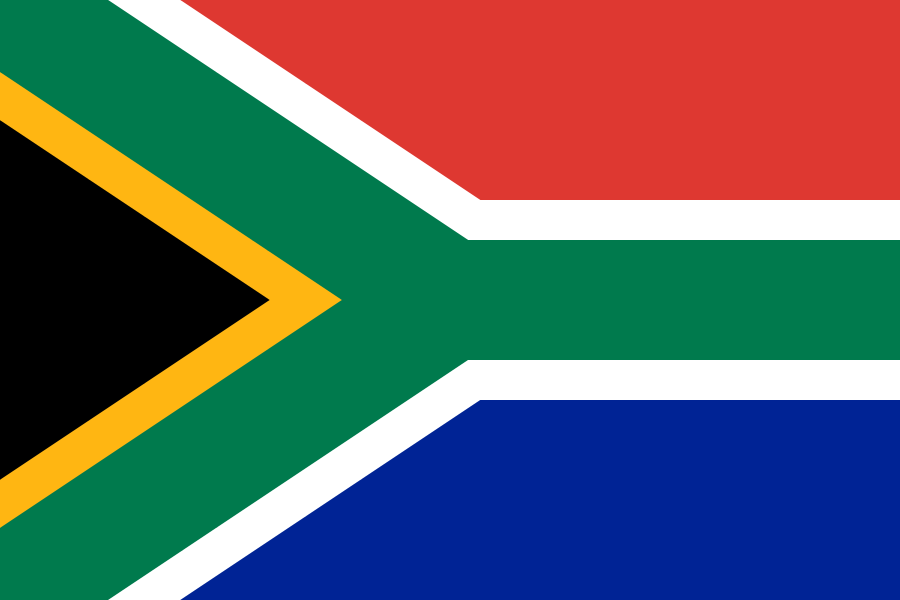Dutch traders landed at the southern tip of modern day South Africa in 1652 and established a stopover point on the spice route between the Netherlands and the Far East, founding the city of Cape Town. After the British seized the Cape of Good Hope area in 1806, many of the Dutch settlers (Afrikaners, called "Boers" (farmers) by the British) trekked north to found their own republics in lands taken from the indigenous black inhabitants. The discovery of diamonds (1867) and gold (1886) spurred wealth and immigration and intensified the subjugation of the native inhabitants. The Afrikaners resisted British encroachments but were defeated in the Second South African War (1899-1902); however, the British and the Afrikaners, ruled together beginning in 1910 under the Union of South Africa, which became a republic in 1961 after a whites-only referendum. In 1948, the Afrikaner-dominated National Party was voted into power and instituted a policy of apartheid - the separate development of the races - which favored the white minority at the expense of the black majority. The African National Congress (ANC) led the opposition to apartheid and many top ANC leaders, such as Nelson MANDELA, spent decades in South Africa's prisons. Internal protests and insurgency, as well as boycotts by some Western nations and institutions, led to the regime's eventual willingness to negotiate a peaceful transition to majority rule. The first multi-racial elections in 1994 following the end of apartheid ushered in majority rule under an ANC-led government. South Africa has since struggled to address apartheid-era imbalances in decent housing, education, and health care. ANC infighting came to a head in 2008 when President Thabo MBEKI was recalled by Parliament, and Deputy President Kgalema MOTLANTHE, succeeded him as interim president. Jacob ZUMA became president after the ANC won general elections in 2009; he was reelected in 2014.
South Africa is a parliamentary republic.
Source: CIA World Factbook
Members:
Resources
Displaying 86 - 90 of 94Regulations in terms of the Deeds Registries Act: Amendment (No. R. 195 of 2013).
These Regulations amend the Regulations in terms of the Deeds Registries Act in: regulation 29 on the description of immovable property; regulation 43 on the form of a deed of transfer, certificate of title or deed of cession; regulation 44A on the deeds of churches, corporations, etc.; regulation 61 on acceptance by the Registrar of Deeds; regulation 68 on procedural requirements for the cancellation of a bond; regulation 73 by substitution and addition of forms.
Amends: Regulations in terms of the Deeds Registries Act. (1999-02-19)
Regulations in terms of the Deeds Registries Act: Amendment (No. R. 241 of 2013).
These Regulations amend the Regulations in terms of the Deeds Registries Act by substituting the Schedule prescribed by regulations 84 and 86 of the Regulations. The Schedule prescribes fees for registrations.
Amends: Regulations in terms of the Deeds Registries Act. (1999-02-19)
Regulations in terms of the Deeds Registries Act; Amendment (No. 166 of 2012).
These Regulations, made in terms of section 9(9) of the Deeds Registries Act, amend the Regulations in terms of the Deeds Registries Act by substituting for the Schedule specifying fees for services a new Schedule attached to these Regulations.
Amends: Regulations in terms of the Deeds Registries Act. (1999-02-19)
Amendment of the Regulations made under the Sectional Titles Act, 1986 (No. R. 820 of 2011).
These Regulations amend the Regulations made under the Sectional Titles Act, 1986 with respect to a wide variety of matters including: sectional mortgage bonds; forms for certificates and other documents issued or made under the Act; management rules set out in Annexure 8; and registration of documents. They also insert new provisions on: replacement of a schedule for a lost or destroyed schedule of servitudes and conditions referred to in section 11(3)(b) of the Act; and replacement of documentation referred to in section 25(2) of the Act.
Community Schemes Ombud Service Act, 2011 (No. 9 of 2011).
This Act establishes the Community Schemes Ombud Service, defines its functions and powers and provides for a dispute resolution mechanism in community schemes, i.e. any scheme or arrangement in terms of which there is shared use of and responsibility for parts of land and buildings such as a sectional titles development scheme. The Service shall develop and provide a dispute resolution service in terms of this Act and carry out various other tasks including regulate, monitor and control and monitor community scheme governance.


